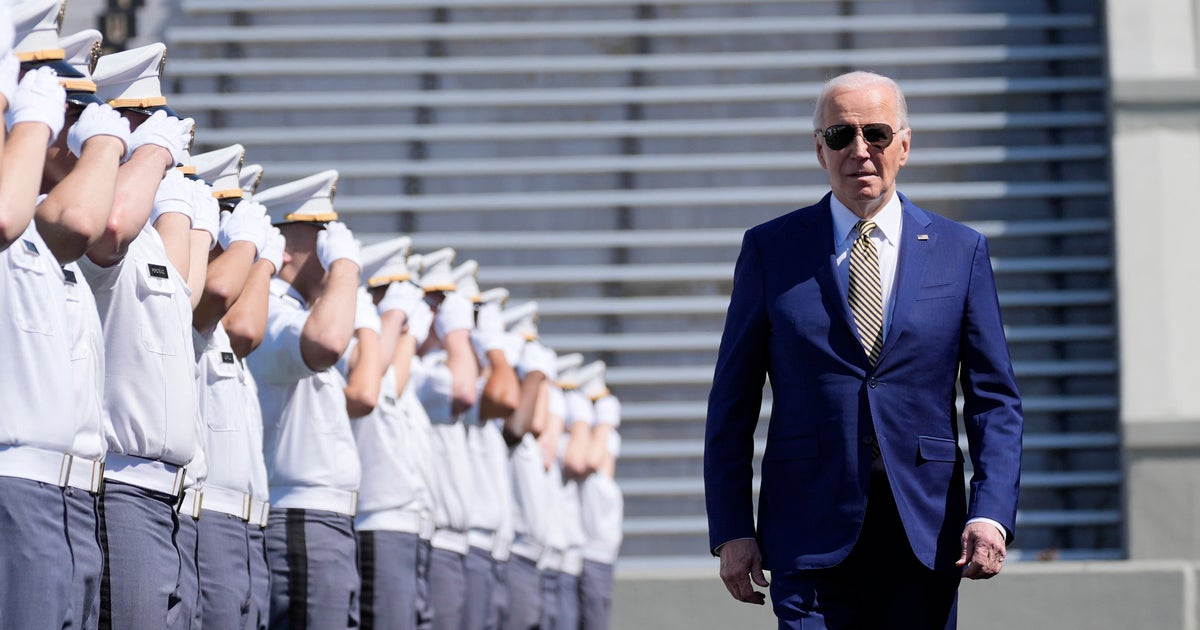
President Biden pardoned LGBTQ+ service members who were convicted of a crime under military law based on their sexual orientation on Wednesday, a move that is expected to affect thousands of service members who were convicted over the six decades that military law formally banned consensual homosexual conduct.
“Today, I am righting an historic wrong by using my clemency authority to pardon many former service members who were convicted simply for being themselves,” the president said in a statement. “Our nation’s service members stand on the frontlines of freedom, and risk their lives in order to defend our country. Despite their courage and great sacrifice, thousands of LGBTQI+ service members were forced out of the military because of their sexual orientation or gender identity. Some of these patriotic Americans were subject to court-martial, and have carried the burden of this great injustice for decades.”
Beginning in 1951, the Uniform Code of Military Justice Article 125 explicitly criminalized consensual “sodomy,” until Congress and President Barack Obama decriminalized same-sex relationships through the National Defense Authorization Act for fiscal year 2014. But the effects of those convictions have lingered for those veterans, leaving criminal records and the stain of a dishonorable discharge, as CBS News has recently reported.
The military code is separate from, but related to, the infamous “Don’t Ask, Don’t Tell” policy adopted during the Clinton years and repealed during the Obama years. That policy banned openly gay and lesbian Americans from serving in the military.
The announcement doesn’t automatically change these veterans’ records. They will still have to apply for and complete a process, senior administration officials said. Eligible service members and veterans must apply for a certificate of pardon, which they can use to get their discharge status changed. That change of status will unlock veterans benefits that many of them have been denied. Officials aren’t sure how long the process could take, or whether those who qualify will be eligible for back pay.
It’s unclear why the president is only now pardoning LGBTQ+ service members, since he’s had the opportunity to do so for nearly three and a half years. Senior administration officials struggled to respond to that discrepancy in a call previewing the pardons.
“The president is committed to righting historic wrongs when he has the opportunity to do so,” one official told reporters.
The president’s pardon comes on one of the final days of Pride Month.
“We have a sacred obligation to all of our service members — including our brave LGBTQ+ service members: to properly prepare and equip them when they are sent into harm’s way, and to care for them and their families when they return home,” the president said in his statement. “Today, we are making progress in that pursuit.”
LGBTQ+ service members and their families have had to fight for benefits from their discharges. A federal judge in San Francisco last week refused to dismiss a lawsuit claiming the military violated the constitutional rights of tens of thousands of LGBTQ+ veterans by failing to grant them honorable discharges when they were barred from serving over their sexual orientation.
Steve Marose was in the Air Force in the late 1980s before the military found out he was gay and then put him on trial. He faced 17 years in prison on a sodomy charge and a charge of conduct unbecoming of an officer, and ultimately was sentenced to two years in a military prison.
“I thought my military life was over,” he told CBS News last year. “But in that moment, I thought my life was over.”
Jocelyn Larkin, an attorney for the Impact Fund, which is representing a group of LGBTQ veterans who were kicked out of the military because of their sexual orientation in a lawsuit against the Pentagon, told CBS News that Wednesday’s action is a “wonderful step forward.”
“But there’s so much more work to be done,” she added. “But we welcome any recognition of the injustice that this group of people has been experiencing.”
Jim Axelrod and Jessica Kegu contributed reporting.
